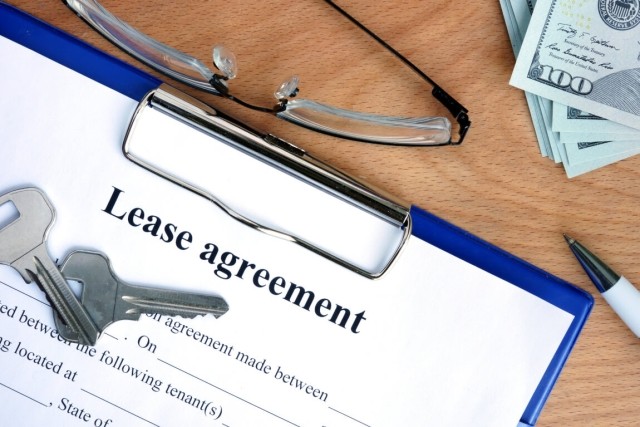The rental application process can be a bit stressful, especially if you have a few skeletons in your closet (bad credit, anyone?). Landlords and property managers are going to evaluate a number of things in your rental application to determine whether or not they want to go into a lease agreement with you, the tenant. So, what goes on in the rental application process, you ask? The blanket term here is a background check, or a tenant screening, as landlords and property managers like to call it.
Ah, the beloved background check. If this sounds a tad bit frightening to you, then don’t worry – you’re not alone. If you have something you’re concerned about a landlord or property manager finding, try not to stress. Patience is key here – it usually takes 24 to 72 hours for a rental application to be processed, but be sure to check with the landlord or property manager to get a personalized estimate. A rental background check typically covers your:
- Criminal Record
- Credit Score
- Employment History
- Proof of Income
- Rental History
How a Criminal Record Can Impact Your Application
When it comes to applying for an apartment, one of the first things a landlord or property manager looks for is a criminal history. Typically, as long as you have no felony charges, it won’t be too big of a deal, but can vary by apartment and property management. It’s understandable that landlords want this information – they want to make sure they have a dependable tenant to avoid things like:
- Late rent payments
- Lease agreement violations
- Illegal activity taking place in the rental unit
- Disgruntled neighbors
- Noise complaints
- Damage to the rental unit
If you do have a criminal record, it can be helpful to get as many references as possible. Your references can be former landlords, employers, coworkers, and even teachers or roommates. Always first ask if someone is willing to be a reference for you. Never provide someone's personal contact information to anyone without permission. You also want to be sure that the person you'd like to use as a reference will have positive and honest things to say about you!
Keep in mind that a landlord or property manager is looking to rent the unit to someone who is credible, someone who will pay rent on time and who will take good care of the property. Having a criminal record is something that may interfere with your apartment renting journey, so do everything you can to prove that you are a good, reliable choice for a tenant, and let your references speak for themselves!
Why Your Credit Score Matters
If you are one of the many who has either bad credit or no credit, try not to panic! Yes, your credit score will be checked by landlords and property managers, but it’s not the end of the world if you’re in either of these situations. Owners and managers of rental properties just want to be sure that you are not in a bad financial situation – if you are, they assume that you may struggle to pay rent on time, which is a major issue if you’re a landlord or property manager looking for a reliable tenant.
If you have bad or no credit, there are a few things you can do to improve your score or prove that you’re reliable when it comes to paying rent on time. Apartment communities are typically checking for credit scores of 600 or above, so if you have a lower credit score than this, you have a few options to prove yourself to the landlord or property manager. These include getting a cosigner, collecting references, or finding a no-credit- check apartment. If you don't have credit, start building up a positive credit history slowly but surely. If you’re in a rush to find an apartment, then you can also try getting a cosigner, paying a larger security deposit, or finding a roommate who has good credit (thanks, roomie!).
A Solid Employment History Helps
Even if you’ve only had one steady job for, let’s say, six months, that’s okay! Any steady paycheck is a good sign in the eyes of a landlord or property manager. Again, they just want to be sure that they are choosing a reliable tenant who has a steady job, income, and rent payment. If your employment history isn’t ideal, they may ask you for employer or personal references, so be prepared. Other than having a good, steady employment history, landlords and property managers are really checking to make sure that you have an income that is reliable enough for you to afford to pay rent on time every month. This is where proof of income comes in.
Proof of Income is Necessary
Proof of income is a term used by landlords and property managers – it simply means that they need you to provide proof that you have a steady income. This proof is usually based off of a copy of your last three pay stubs, which you will give them during the rental application process. A guideline for many apartment communities is that a tenant must make three times the rent – this is pretty standard, so make sure that the apartment you are interested in is within your budget!
A Poor Rental History Doesn't Always Mean Denial
The biggest thing that landlords and property managers are looking for in your rental history is the dreaded word: evictions. A formal eviction doesn’t mean that your application will be denied for every apartment – it just means that you’re going to have to work a little harder to prove that you are a solid tenant. Landlords and property managers do not want to have to deal with an eviction. It’s a costly, time consuming process that isn’t positive for either party. Present your case, get as many references as you can, and hope that your previous negative rental history can stay in the past and you can move forward with a new, positive rental journey.
Ready to Find Your Perfect Rental?
With Apartments.com, you can easily apply for rentals online and take the stress out of the process. Start your search today and let us help you find a great place to call home!
Originally published on April 22, 2019






